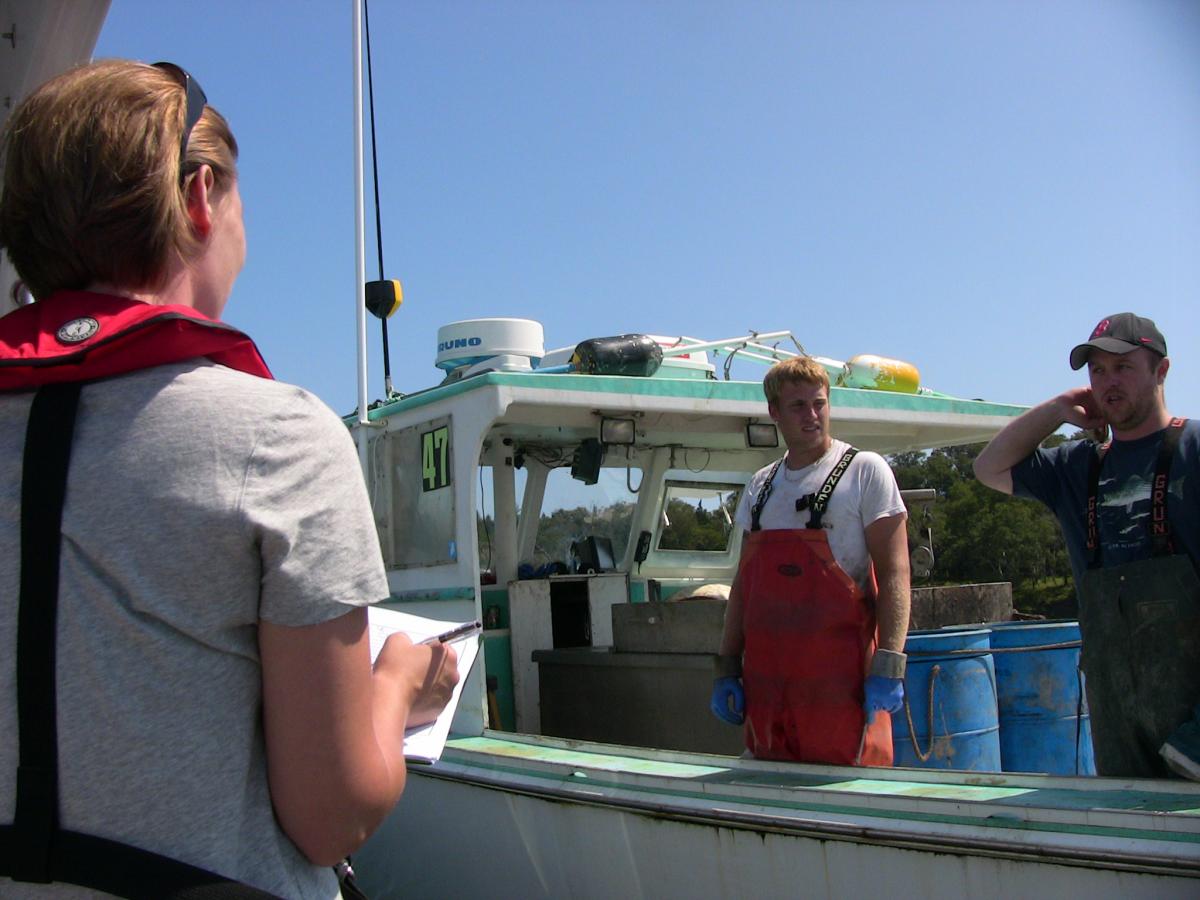R-08-03 Safety and Compliance in the Maine Commercial Fishing Industry
Mary E. Davis
Urban and Environmental Policy and Planning
Tufts University
617-627-3394
Email Mary Davis
Fishing is a dangerous occupation, and each year in Maine an average of four fishermen die doing their job. In 2010, seven fishing-related deaths occurred just within in Cobscook Bay. Fishermen are subject to stringent federal and state safety guidelines, but whether or not they comply with current safety standards is unknown. Fishermen vary widely in their level of safety preparedness, and the costs and realities of achieving compliance with mandatory safety requirements will be more difficult for some groups than others. High levels of unemployment and unpredictable seasonal incomes complicates the decision by fishermen to adopt required safety measures.

Davis randomly sampled vessels within six commercial fishing regions of the state during routine boardings by the US Coast Guard and the Maine Marine Patrol, collecting data on compliance and associated demographic characteristics. More than 40% of vessels were found to be non-compliant with applicable vessel-specific safety regulations. The majority of fishermen had not been trained in safety measures, and many were not familiar with the proper use and maintenance of life-saving equipment. Fishermen in locations that are more isolated from Coast Guard training efforts and stations, such as Downeast Maine, had a lower level of preparedness. Based on these results, Davis and colleague Ann Backus concluded that a strong education and enforcement effort is needed in order to increase compliance with stricter safety regulations passed at the federal level in October 2010.
The results are, however, contributing to greater safety on the water. Prompted by the number of deaths in the eastern Maine urchin industry, the lack of safety training of dive tenders, and to some extent by this study, the Sea Urchin Zone Council and DMR staff developed an online Diving Safety Course that is required for those who want to be licensed for tending fishermen diving for urchins and other hand-harvest fish. Since the course was available in December 2010, 25 new diver tender licenses have been issued.
2-year project, 2008-2010
Total Sea Grant funds: $141,419
